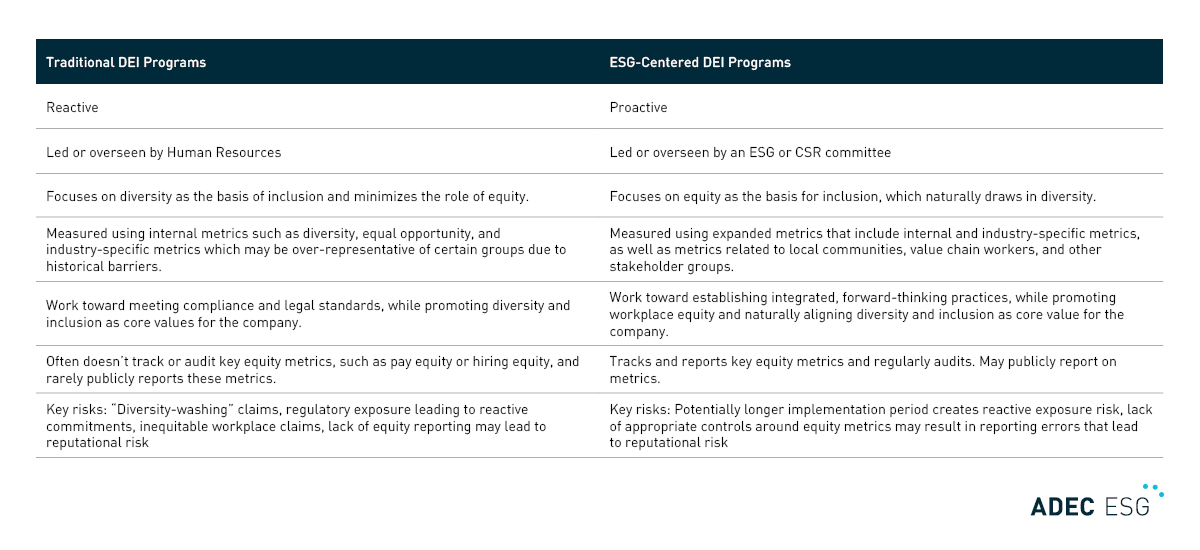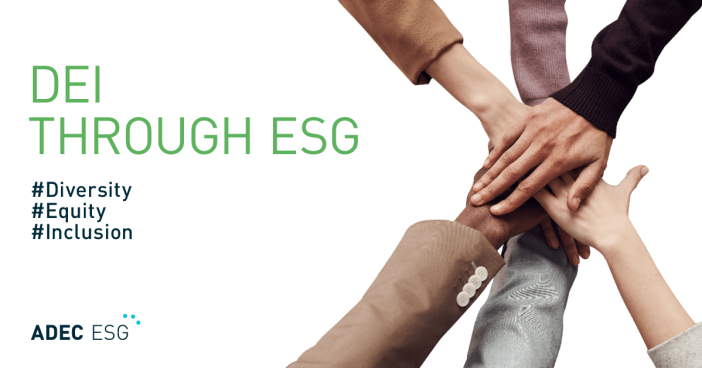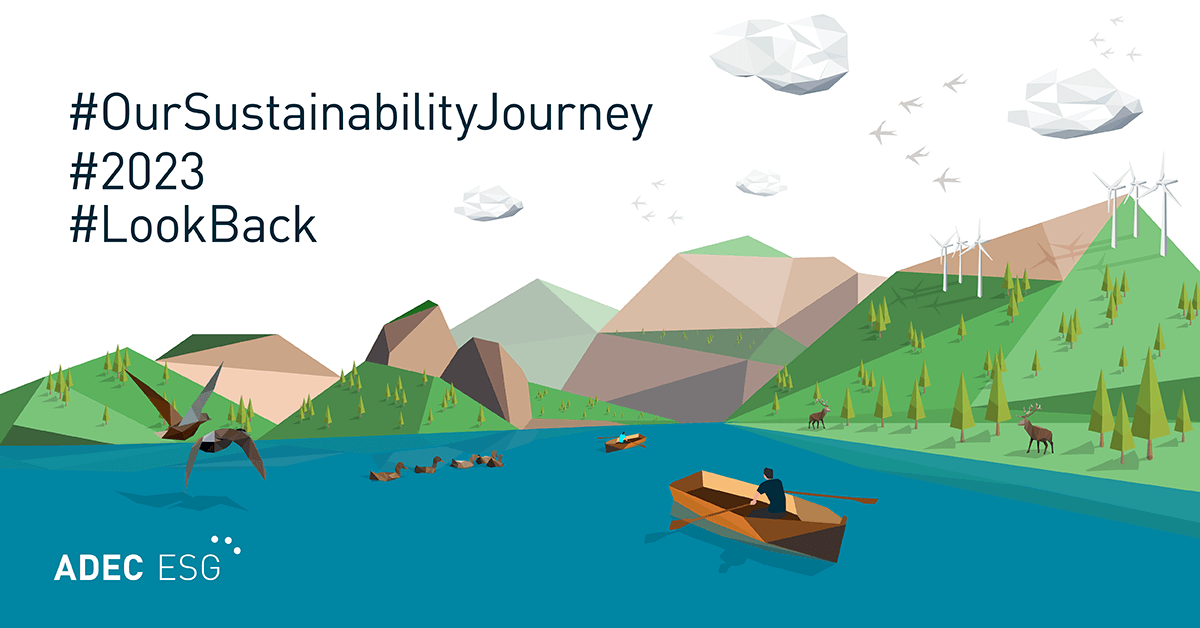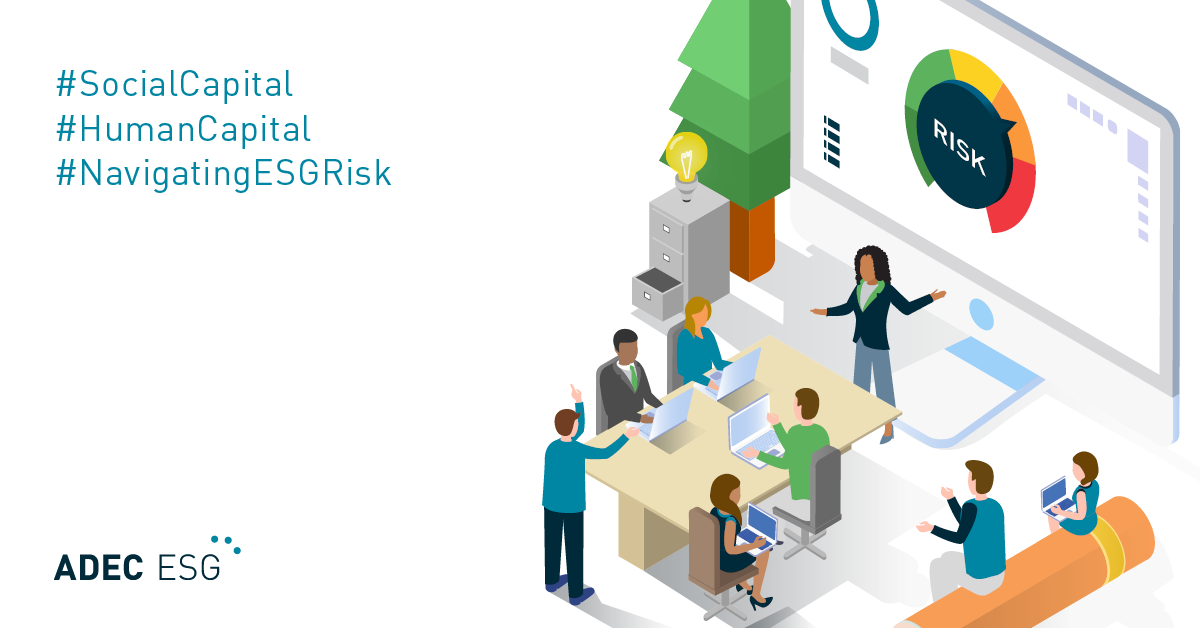In today’s evolving corporate landscape, “DEI” (diversity, equity, and inclusion) has morphed into an odd duality, becoming a double-edged sword that is simultaneously indispensable and rife with challenges. While the fundamental tenets of traditional DEI are crucial for fostering fair treatment and full participation, the politicization of these initiatives has not only given rise to legal challenges but has also cast a shadow over their implementation, rendering them inherently risky.
In this blog, we’ll dive into the evolving DEI landscape, identifying challenges and proposing an innovative solution: transitioning toward an ESG-centered (environmental, social, and governance) DEI program.
What is a DEI program?
DEI programs are initiatives designed to promote the fair treatment and full participation of all people, particularly those belonging to historically underrepresented groups. With roots as far back as the 1960s’ civil rights movement, DEI was popularized in the 1990s, alongside the concept of corporate social responsibility, after research into workplace inequity and emotional intelligence made clear the importance of an inclusive work culture.
Traditional programs typically center on diversity, which involves including a range of individuals from different backgrounds, and treat it as a prerequisite for inclusion, or the fair and respectful treatment of all employees, with equal access to resources and opportunities. Equity, which expands inclusion to incorporate the unique needs of the individual, is often lacking in tangible practices and successful implementation.
While the intent of these DEI programs is crucial for the modern workplace, their execution often falls short. Numerous studies reveal significant shortcomings, indicating that most DEI programs not only fail to deliver but also inadvertently activate bias and foster exclusion. These shortcomings can create uncomfortable working environments where individuals from all backgrounds feel targeted in opposing ways and certain groups feel “forgotten” in DEI efforts.
Despite the setbacks, DEI plays a pivotal role in ESG and numerous studies highlight the positive correlation between diverse and inclusive workplaces and heightened profitability. Further, 56% of U.S. workers believe that focusing on DEI at work is a positive initiative, while 59% of U.S. consumers emphasize the importance of supporting brands that actively promote diversity and inclusion. These numbers are expected to continue rising as Gen Z—recognized as the first minority-majority generation, meaning the first generation where minority group populations will collectively outnumber the majority group population—both gains prominence in the workplace and accumulates more purchasing power. Gen Z overwhelmingly supports DEI efforts, with studies showing that:
- 83% consider an employer’s commitment to DEI when deciding where to work,
- 75% would reconsider before applying a job at a company they felt had lacking DEI efforts, and
- 80% of Gen Z consumers believe it’s crucial for brands to prioritize diversity and inclusion.
What can go wrong in DEI
While the intention behind traditional DEI programs is commendable, it is essential to confront the challenges inhibiting their effectiveness. Let’s explore the issues impeding the success of these traditional DEI initiatives.
Human resources’ oversight of DEI
Historically speaking, HR has been responsible for recruiting, hiring, compensation, employee relations, training, and compliance with labor laws, including anti-discrimination and anti-harassment laws and policies. Naturally, an HR department may seem like the logical choice to oversee or manage DEI programs.
However, trust and psychological safety are crucial requirements for a DEI program to succeed, and a 2022 study conducted by a global learning company found that:
- Trust in HR: 75% of employees don’t trust that their HR leaders care about their needs.
- Confidence in HR: 47% of employees don’t feel safe confiding in or getting help from HR at all.
- Comfort in reporting discrimination: 86% of employees don’t feel comfortable bringing a discrimination claim to HR.
- Belief in HR advocacy: 91% of employees don’t believe their HR leader would advocate on their behalf.
- Perception of HR focus: 37% of employees say that their HR leader is more concerned with advocating for the organization than the employee, making them hesitant to speak with HR on sensitive issues.
These statistics highlight significant challenges in employee trust, confidence, and perception regarding HR, emphasizing the need for a nuanced approach to HR’s role in DEI programs. In just the last few years, workers have watched major social movements like #MeToo and Black Lives Matter unfold while publicly exposing rampant corporate abuses, such as sexual harassment, racial discrimination, and inequities. While much of the fault for those issues had been rightfully placed at the executive level, what many workers took away from these movements is that HR departments would prioritize preventing lawsuits rather than fixing the problem for employees.
While HR does play an important role in employee protection, its compliance duties can conflict with the goals of DEI. For instance, HR’s responsibility to investigate claims of racism or harassment, while an essential task for mitigating corporate legal risk, can run counter to DEI’s primary aim of preventing such incidents. This dual focus may create a perception that engaging DEI initiatives could trigger unwanted investigations.
Additionally, when approaching DEI from an HR compliance lens, responsibility for addressing problematic behaviors may be shifted back to employees, implying that they are interpersonal issues rather than systemic within the organization. Questions such as, “Did you discuss this with them directly?” or “Did you tell them it makes you uncomfortable?” have become commonplace at the intersection of HR and DEI but can undermine the psychological safety needed for a successful program. Employees may feel as though their experiences are being minimized and that HR departments are implying that such incidents should be self-resolved. This division can mean employees are less likely to report unethical behavior, creating a higher risk of employee turnover and legal issues, as well as reputational damage to the company.
Reactive DEI commitments
In 2020, the mainstream resurgence of the Black Lives Matter movement led to a significant corporate push toward DEI-centered goals, hiring, and program development. The following year 94% of all new hires reported by 88 of the S&P 100 companies were people of color, and we saw an impressive 56% surge in job postings for DEI roles.
While these statistics represent an initial step in addressing historical inequities, this reactive approach can often feed “tokenism” by failing to properly address the issues within the company that led to the historical inequities they’re attempting to resolve.
Tokenism is a practice that occurs when there is diversity without equity or inclusion. It involves showcasing employees from underrepresented groups to create an artificial appearance of diversity, particularly in marketing, without substantive action on equity or inclusion. This issue has led to a surge in “diversity-washing” lawsuits, where employees and investors are suing companies for neglecting the reactive commitments made in 2020. It has also resulted in an increase in Equal Employment Opportunity Commission (EEOC) lawsuits and even lawsuits claiming discrimination within corporate DEI programs.
When commitments are reactive, companies tend to fall back on industry norms when benchmarking their diversity efforts. This is characterized by companies maintaining low-levels of diversity to remain in line with the industry norms and is reflected through the continued overrepresentation of historically underrepresented groups within low-paying or non-management roles, especially within blue collar industries, and the continued underrepresentation of these groups within higher-paying white-collar jobs. These types of reactions and imbalanced representation are counter to the goal of DEI in creating access for members of historically marginalized groups.
When navigating the complexities of DEI commitments and issues, it’s critical for companies to consider the fickle nature of social media and the potential pitfalls of reactive, short-term responses, which are often seen by consumers as performative in nature. Genuine, sustained efforts over time not only resonate better with diverse audiences, but also contribute to the lasting transformation needed for true equity and inclusion.
Having looked at the challenges of traditional DEI programs, let’s now dive into the transformative potential of ESG-centered DEI.
What is ESG-centered DEI?
ESG-centered DEI is not new; it’s just less common. Like traditional DEI programs, in ESG-centered DEI, it is vital that corporations and employees understand how historical and modern-day inequities shape our workplaces. Unlike traditional DEI programs, it deviates from the norm by centering on equity as the basis for inclusion and diversity, while treating DEI as essentially its own strategic management system.
So how do we build this type of DEI program? Let’s start by looking at equity.
Equity and ESG-centered DEI
Equity encompasses the fair and respectful treatment of all individuals, ensuring equal access to opportunities and resources based on individual needs. Its significance is not only ethical but deeply entrenched in U.S. law, such as the Americans with Disabilities Act of 1990, the Equal Pay Act of 1963, the Equal Employment Opportunity Act of 1972, the Civil Rights Act of 1964, and the 14th Amendment. Compliance with these laws—and adherence to social standards and globally accepted practices—is indispensable in both DEI and ESG contexts.
DEI is commonly associated with diversity metrics, anti-bias training, and equal opportunity. However, when reframed through the lens of ESG, important topics such as ethics, human rights, and even environmental practices come into view as integral components of DEI. These ESG topics frequently have disparate impacts on marginalized communities, including corporate stakeholders such as employees, value chain workers, local communities, and customers.
In the realm of ESG, DEI goes beyond the traditional metrics to foster an equitable and sustainable workforce that ensures compliance while mitigating social and human capital risk. This approach doesn’t diminish the importance of addressing historical and modern inequities that shape our workplaces; rather, it integrates equity into daily operations across the organization and its value chain, reaching all the way to customers.
This interconnected view of equity, DEI, and ESG underscores the integrated approach needed to create socially responsible, ethical, and sustainable practices within organizations. By embracing this perspective, companies can build a resilient foundation for a sustainable workforce that extends beyond legal obligations, positively impacting individuals and communities throughout their entire ecosystem.
Creating a sustainable workforce
To build a genuinely sustainable workforce, a company must commit to integrating equity into its daily operations. This deliberate and strategic decision places equity at the forefront, acting as a guiding principle that forms the bedrock for the natural evolution of inclusion and diversity within the organization.
This approach extends beyond mere compliance; it represents a conscientious and forward-thinking strategy aimed at establishing practices that are not only resilient, but also inclusive and socially responsible. By seamlessly integrating equity into daily operations and nurturing a culture that resonates not only within the organization but also across the entire value chain, companies are empowered to make a positive impact on individuals and communities throughout their ecosystem, while minimizing the higher risk issues the politicization of traditional DEI programs has exposed.
As we continue to navigate the evolving landscape of diversity, equity, and inclusion, the adoption of an ESG-centered DEI approach emerges as a proactive and transformative path forward. It’s not just a strategic move; it’s a commitment to building a sustainable workforce—one that values equity, embraces diversity, and champions social responsibility. By integrating ESG principles in DEI practices, companies can forge a positive impact, that transcends organizational boundaries, fostering resilience, inclusivity, and ethical practices. The evidence is clear—now is the time to navigate toward a more equitable and sustainable future.
ADEC ESG Solutions is a leader in sustainability solutions, supporting global organizations as they work to integrate environmental, social, and governance topics into successful and impactful corporate strategy. Talk to us today to learn more about how we can help you create meaningful sustainability programs that make a positive social impact and foster a resilient, inclusive workforce.




